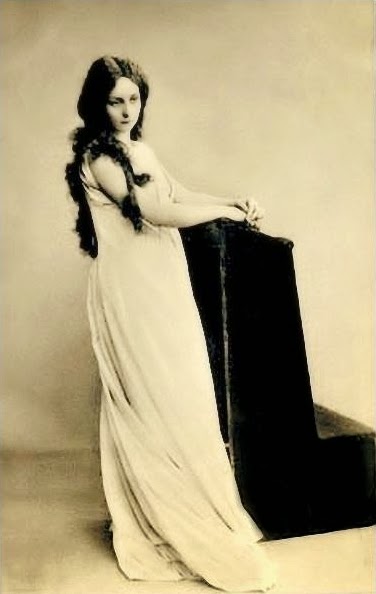 |
Вера Фёдоровна Комиссаржевская в роли Дездемоны
(Vera Komissarzhevskaya as Desdemona), before 1910
|
In Horrible Prettiness: Burlesque and American Culture, Robert Allen suggests that in the cultural realm it can be more useful to think of power relations in terms of 'subordination' and 'ordination', since 'cultural power is rarely exercised with the force and directness suggested by the term domination'. Rather, power is expressed through ordination: the arrangement of things in ranks and orders - what is high, what is low; what is us, what is them. Insubordination, then, involves temporarily upsetting these hierarchies and distinctions.
In his exploration of how burlesque is involved in this struggle between ordination and insubordination, Allen turns to Michael Bakhtin and his idea of the transgressive possibilities of the carnivalesque in life and literature, particularly Rabelais' anarchic and grotesque texts. Bakhtin explored how carnival allowed hierarchies to be disrupted and even turned on their head, so that a servant can be master for a day, and even sacred rituals can be lampooned. However, as Allen points out, the Marxist critic Terry Eagleton and others have questioned whether this does any permanent damage to the dominant ideology or just acts as a form of pressure valve, so can even be seen as part of the operation of power of the dominant group.
It is interesting to read the contemporary New York dramatist Paula Vogel's use of burlesque in this context. For example, in her Desdemona: a Play about a Handkechief - a rewriting of Shakespeare's Othello - what is happening between the audience and the performers when Bianca and Desdemona cheerfully whip each other? Are they turning themselves into sexual objects to be consumed by the audience or is something more subtle happening? Is the audience perhaps being forced to confront themselves with the question of why this scene is pleasurable to them and what role they have as spectator? How does Vogel disrupt the original dichotomy of virgin and whore in Shakespeare's Othello to explore heterosexual desire and the brutal institutions by which - in this play - it is contained and exploited. Given that Vogel refuses to allow her play to settle comfortably either into the territory of unadulterated comedy or tragedy, how is its playfulness and slipperiness used to upset the symbolic order that attempts to fix us in our identities? Does, in fact, playfulness have more revolutionary potential than the strict control of meaning found in many more sombre political plays?
References
Robert Allen, Horrible Prettiness: Burlesque and American Culture (University of North Carolina Press, 1991).
Copyright Catherine Rosario
Paula Vogel, Desdemona: A Tale About a Handkerchief (Dramatists Play Service, 1994).